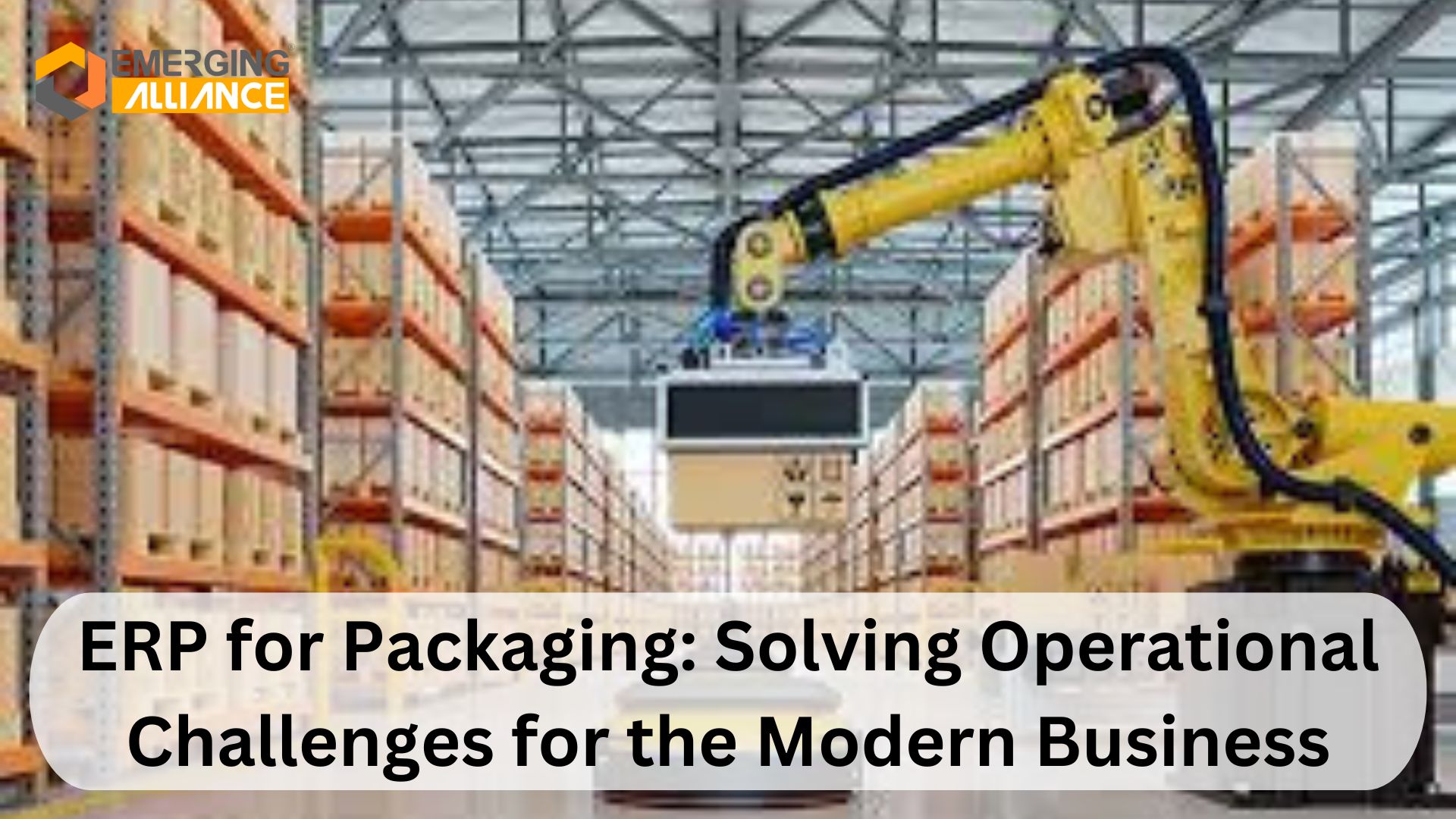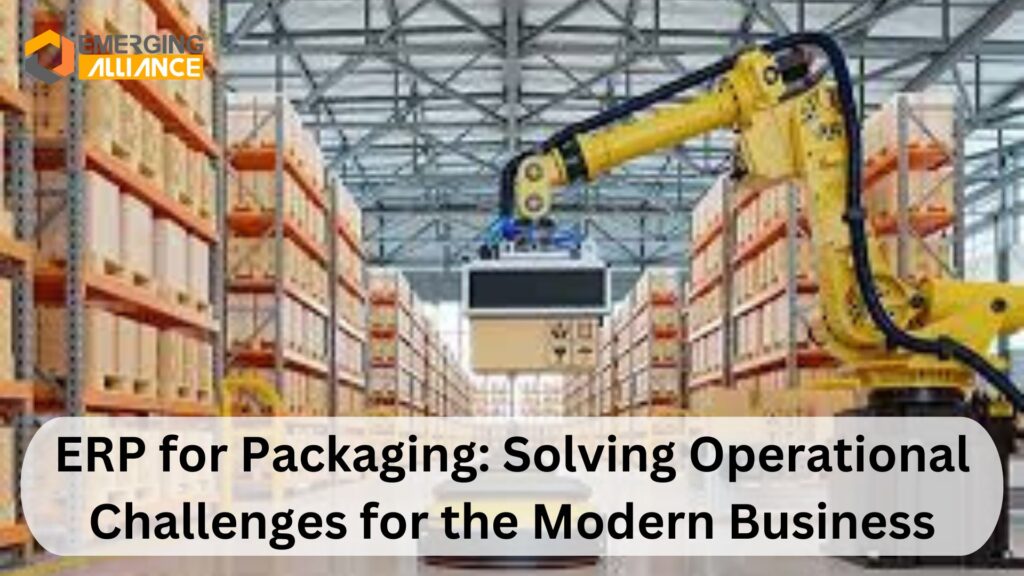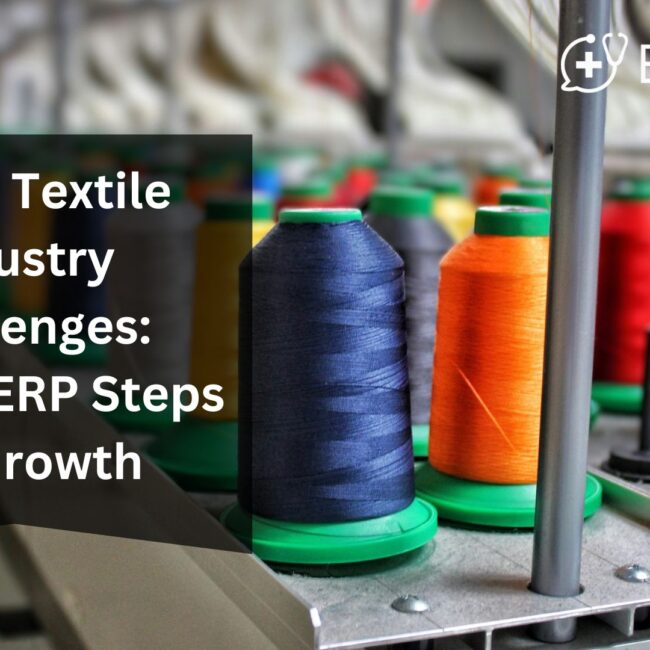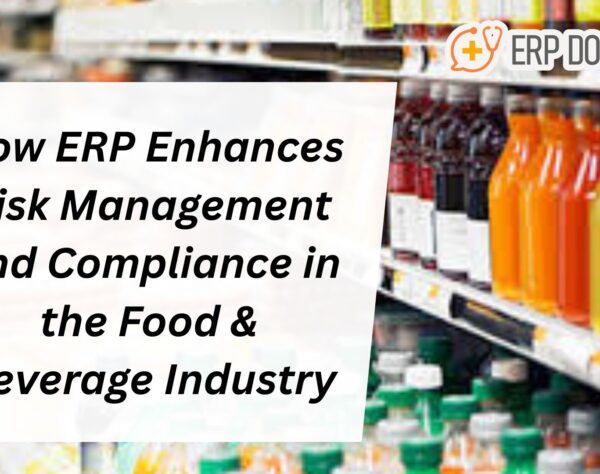
ERP for Packaging: Solving Operational Challenges for the Modern Business

Mastering Packaging Operations: How ERP Simplifies Your Workflow
The packaging industry has seen rapid growth, driven by e-commerce, globalization, and increasing consumer demands for sustainable and innovative packaging solutions. As a business owner in the packaging sector, you’re likely familiar with the operational challenges that come with managing complex workflows, inventory, supply chains, and production schedules. To stay competitive and improve efficiency, implementing the right ERP technology solutions is critical.
Enter ERP (ERP) — A Comprehensive Solution for Packaging Industry.
We will explore how ERP for Packaging Industry can address common operational challenges and help your business scale efficiently. From streamlining production processes to ensuring real-time data access, ERP for Packaging Industry provides an integrated platform designed to enhance your business operations.
Operational Challenges in the Packaging Industry
Running a packaging business involves managing multiple variables simultaneously. Whether it’s tracking raw materials, coordinating production schedules, or ensuring timely deliveries, keeping everything organized is no easy feat. Here are some common challenges faced by packaging businesses:
- Complex Inventory Management Packaging businesses often deal with fluctuating inventory levels, diverse product types, and various suppliers. Managing these elements manually or with basic systems can lead to stockouts, overstocking, and inefficient use of resources.
- Supply Chain Inefficiencies With so many moving parts in the supply chain, delays, miscommunications, and missed deadlines are common. Packaging businesses need real-time insights into their supply chain to ensure timely production and delivery.
- Regulatory Compliance The packaging industry is subject to stringent regulations, especially when it comes to materials, labeling, and environmental standards. Staying compliant requires up-to-date knowledge and accurate tracking, which can be time-consuming without the right tools.
- Production Planning and Scheduling Packaging businesses often struggle with production planning due to the variability in orders, tight lead times, and demand spikes. This can result in delays, bottlenecks, or underutilized resources.
- Cost Control and Profitability Managing costs while maximizing profitability is a delicate balance in the packaging industry. Without accurate financial reporting, businesses may struggle to identify areas of inefficiency or missed opportunities for savings.
Why ERP is the Ideal Solution for Packaging Industry
ERP is a robust, all-in-one ERP solution designed specifically for small and medium-sized enterprises (SMEs), including those in the packaging sector. This comprehensive solution helps you streamline your business processes, improve operational efficiency, and enhance decision-making across all departments.
1. Optimized Inventory Management
ERP for Packaging Industry offers real-time inventory tracking and automated replenishment. By integrating your inventory with your production and sales processes, ERP ensures you maintain optimal stock levels, reducing excess inventory and preventing stockouts. The system also supports batch and serial number tracking, making it easier to track the origins and movements of materials in compliance with industry regulations.
2. End-to-End Supply Chain Visibility
ERP integrates all your supply chain activities—from procurement to production to distribution. This provides you with a single, unified view of your supply chain. With SAP solutions for Packaging Industry, you can track supplier performance, monitor delivery times, and manage purchase orders, ensuring smoother, more efficient operations. The system also helps mitigate risks by offering real-time data on supplier performance and inventory levels.
3. Seamless Production Planning and Scheduling
Managing production schedules is crucial in the packaging business, where lead times and demand are ever-changing. ERP for Packaging Industry allows you to automate production planning, optimize work orders, and balance workloads across production lines. The system also facilitates demand forecasting and materials requirement planning (MRP), ensuring you have the right materials available at the right time for production.
4. Enhanced Regulatory Compliance
ERP for Packaging Industry ensures that your business stays compliant with global and local regulations. It can help track packaging materials and monitor their compliance with environmental standards, quality control requirements, and labeling rules. The system also provides audit trails and documentation to ensure you are ready for inspections and audits at any time.
5. Financial Management and Cost Control
ERP for Packaging Industry integrates financial management into your daily operations, offering real-time insights into your business’s financial health. You can monitor costs, track expenses, and identify areas where you can improve margins. With tools for budgeting, forecasting, and financial reporting, ERP ensures better control over costs and more informed decision-making.
How to Implement ERP for Your Packaging Business
Implementing ERP for Packaging Industry can seem like a daunting task, but with the right planning and execution, it can transform your business operations. Here’s a step-by-step guide to getting started with ERP:
1. Assess Your Needs
Begin by identifying the specific challenges your packaging business faces. Whether it’s inventory management, production scheduling, or regulatory compliance, understanding your pain points will help you tailor the ERP solution to your needs.
2. Select the Right ERP Implementation Partner
An experienced ERP implementation partner can guide you through the process of installing and configuring ERP. Look for a partner with experience in the packaging industry and a proven track record of successful implementations.
3. Data Migration
Migrating your existing data into ERP is a critical step. Work with your implementation partner to ensure that data from your legacy systems is properly transferred to avoid data inconsistencies and operational disruptions.
4. Customization and Training
Customize ERP to align with your business processes and workflows. It’s also essential to train your staff on how to use the new system effectively. Proper training ensures that your team can leverage all the features of ERP to improve productivity.
5. Ongoing Support
After the implementation, it’s important to have ongoing support to address any issues and to ensure that the system is continuously optimized. Regular updates and troubleshooting will help you maintain a smooth operation.
Top Questions About ERP in Packaging Sector
1. What is ERP, and how does it help packaging businesses?
ERP (Enterprise Resource Planning) is an integrated software solution that helps businesses manage various operations, like inventory, production, supply chain, and financials, all in one system. For packaging businesses, ERP streamlines processes, improves efficiency, and provides real-time data to make better decisions.
2. What are the main challenges faced by packaging businesses?
Packaging businesses often face challenges like managing fluctuating inventory, supply chain inefficiencies, production scheduling issues, regulatory compliance, and controlling costs. These can lead to delays, stockouts, or financial inefficiencies without the right tools.
3. How can ERP improve inventory management in the packaging industry?
ERP provides real-time tracking of inventory, automates stock replenishment, and ensures optimal inventory levels. It helps avoid stockouts or overstocking, tracks materials from suppliers, and ensures compliance with regulations like batch and serial number tracking.
4. How does ERP help with regulatory compliance in packaging?
ERP systems track packaging materials, monitor environmental standards, and ensure products meet labeling and quality control requirements. It also keeps audit trails and documentation, making it easier for businesses to stay compliant and ready for inspections.
5. What steps are involved in implementing ERP for my packaging business?
Implementing ERP involves assessing your business needs, selecting an experienced ERP partner, migrating data from your old system, customizing the software to fit your processes, training your team, and ensuring ongoing support for smooth operation.
Future-Proof Your Packaging Industry with ERP
As the packaging industry continues to evolve, staying ahead of operational challenges is essential for growth and competitiveness. ERP for Packaging Industry provides a comprehensive, scalable, and user-friendly solution to address your operational hurdles. By optimizing your inventory management, production processes, financial oversight, and supply chain visibility, ERP empowers you to streamline operations and drive profitability.
Visit ERP Doctor for Expert Solutions and Support
Want to speak to an expert? Fill in the form below, and we will be in touch with you shortly!
Warning: Trying to access array offset on value of type null in /home/u231991539/domains/erpdoctor.in/public_html/wp-content/plugins/wpforms/includes/class-frontend.php on line 109







